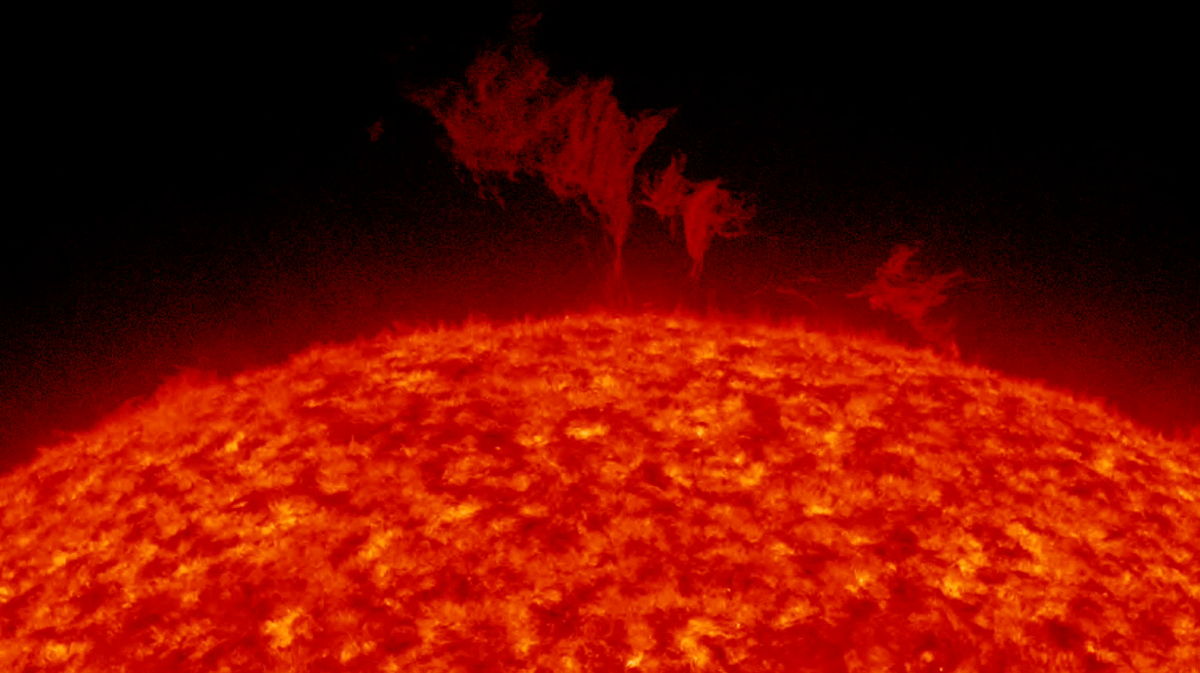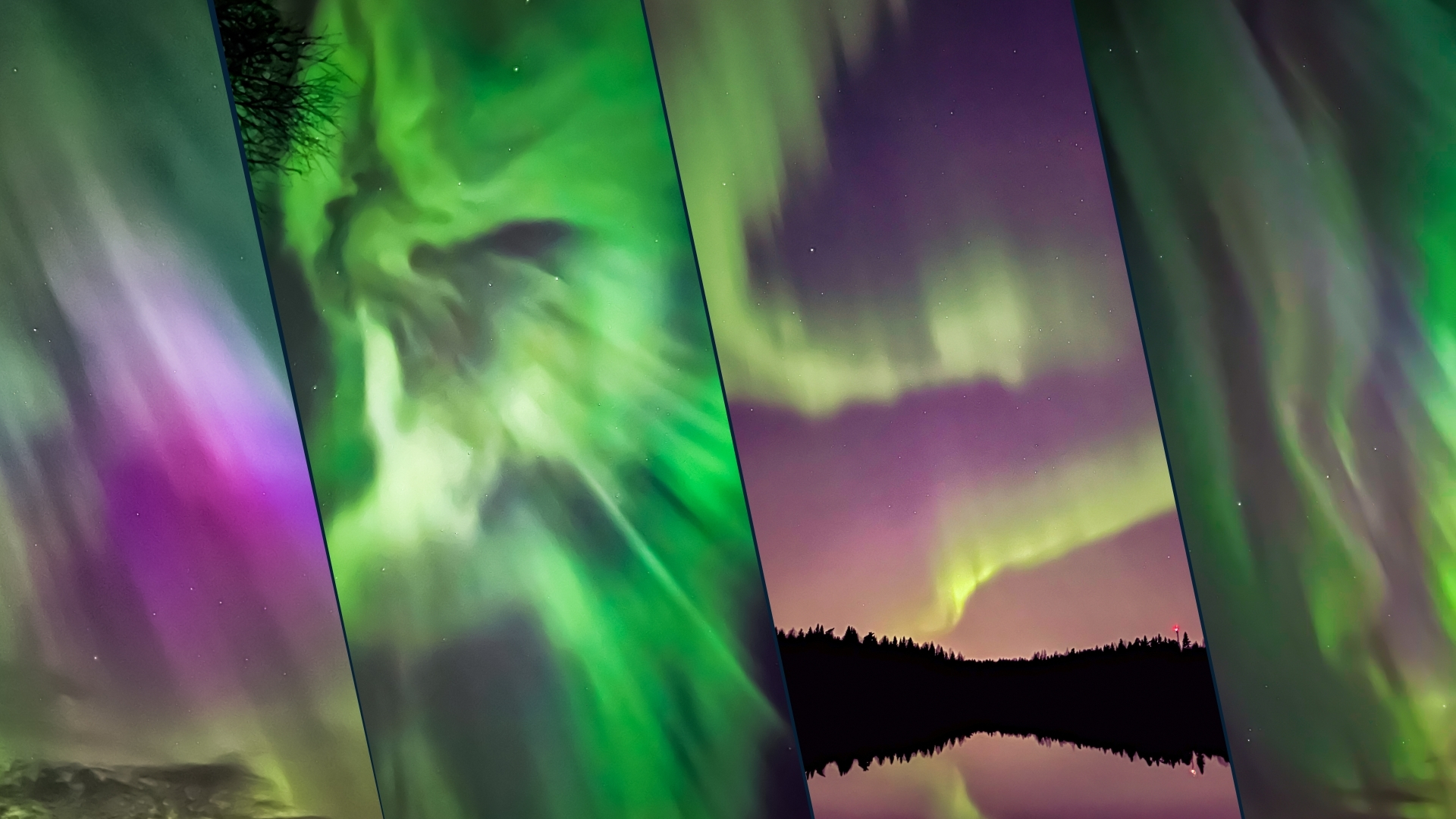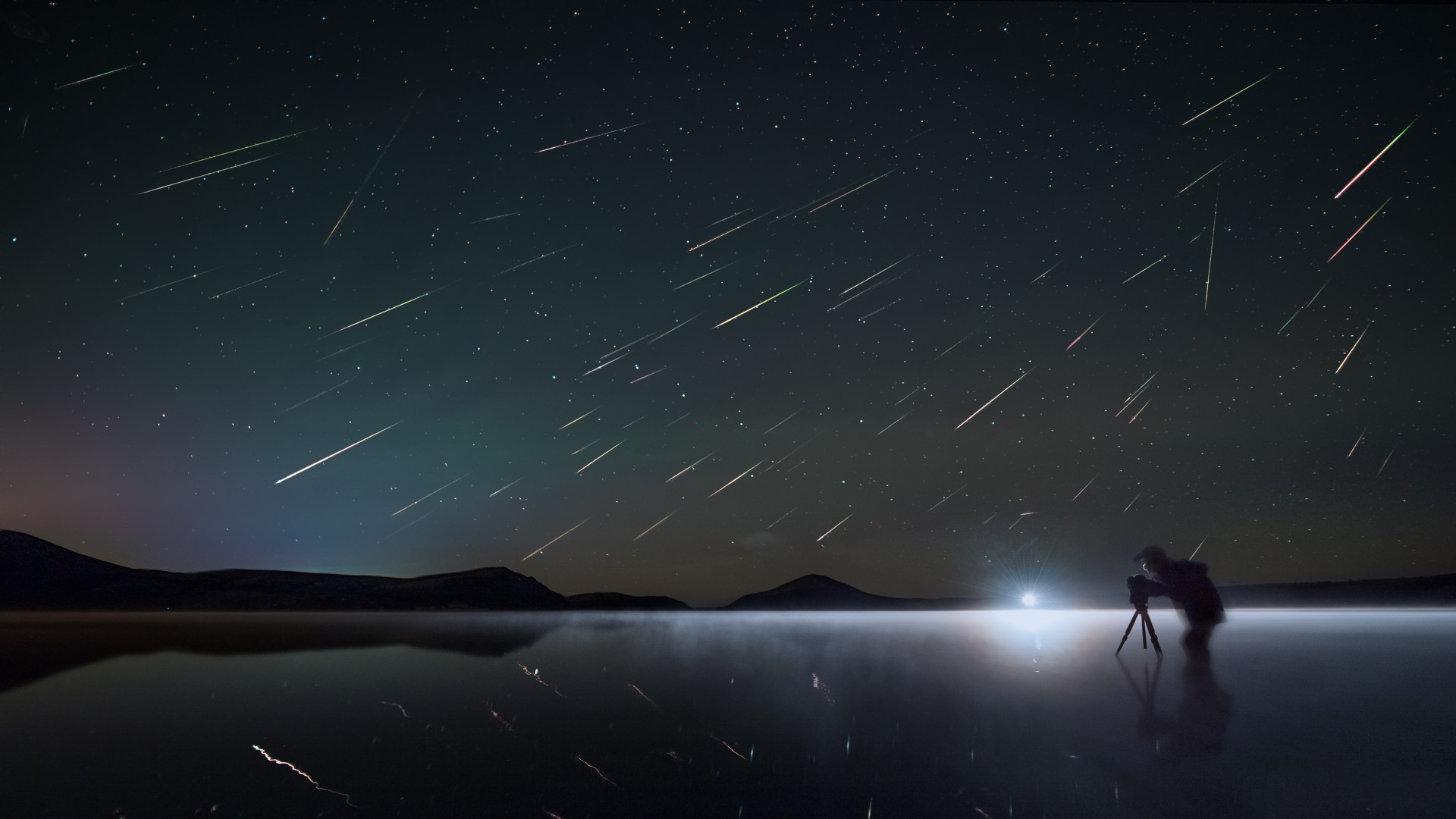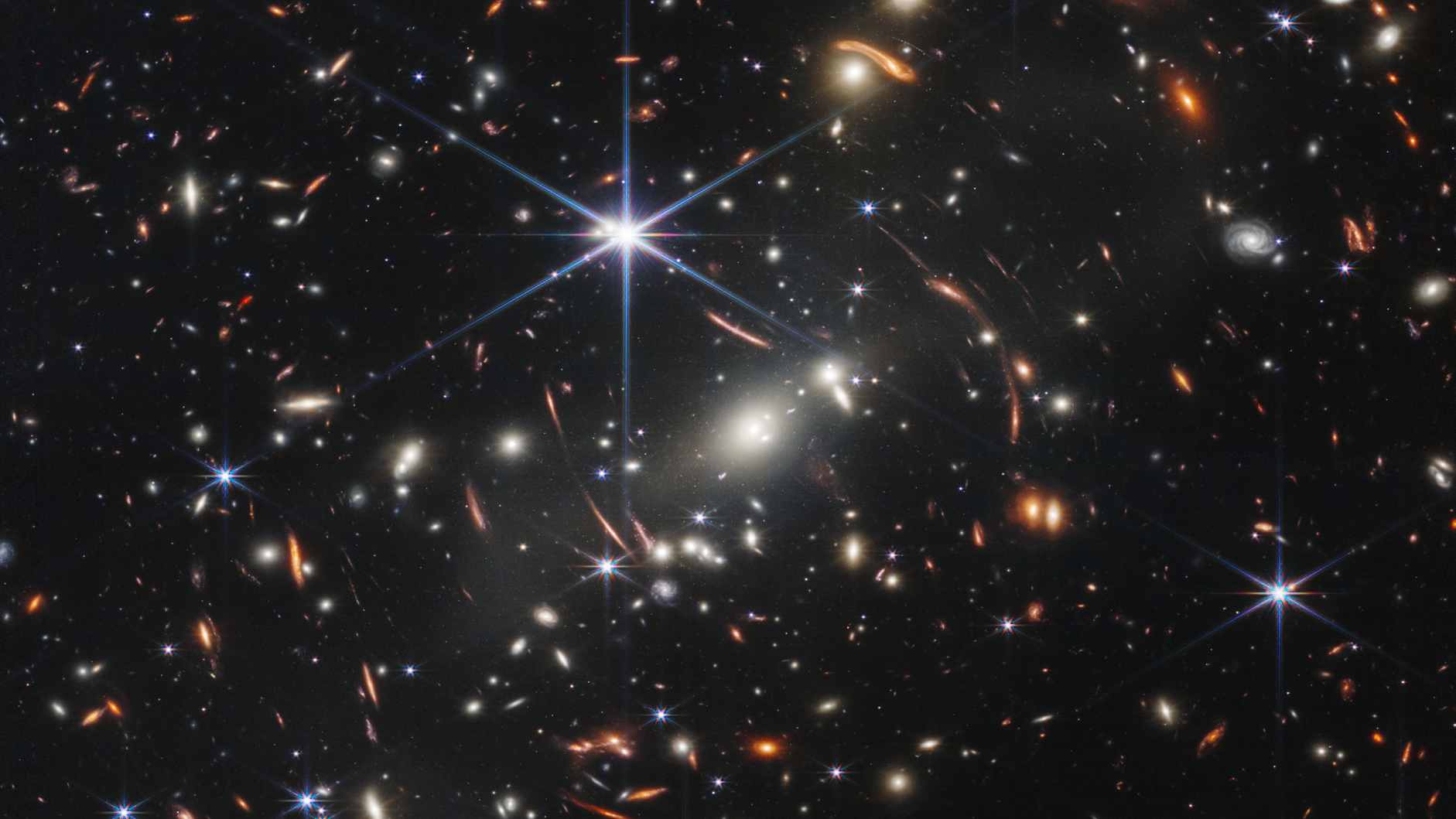Arianespace launches 34 OneWeb satellites on Soyuz rocket in 1st launch of 2022
An Arianespace Soyuz rocket launched 34 new broadband satellites for the OneWeb constellation to space today (Feb. 10).
In its first mission of 2022, the European launch provider Arianespace launched Soyuz Flight VS27 from the Guiana Space Center in Kourou, French Guiana at 1:09 p.m. EST (3:09 p.m. local time, or 1809 GMT).
"There we have it! Liftoff of OneWeb's launch 13 from Kourou in French Guiana," launch commentator Georgie Barrat said during a live webcast of the mission. "Gosh, this is the moment that you tune in to watch a live rocket launch, isn't it? To see it go from that launch pad and hurtle — and look at it hurtling — into orbit."
Video: 34 OneWeb satellites launch atop Arianespace Soyuz rocket
Related: Space calendar 2022: Rocket launches, sky events, missions & more!

"The total duration of the mission will be 3 hours and 33 minutes and will include nine satellite separations, after which the satellites will subsequently raise themselves to their operational orbit," Arianespace said in a statement.
The new broadband satellites for OneWeb are meant to target sectors including aviation, maritime, backhaul, governments and emergency response services, Arianespace added.
This launch, OneWeb's 13th, is dedicated to making sure the set of satellites do not "harm this new frontier in connectivity for the generations to come, as we develop it for the benefit of everyone," OneWeb said in a statement about today's launch.
Get the Space.com Newsletter
Breaking space news, the latest updates on rocket launches, skywatching events and more!
OneWeb also published a set of practices they aim to follow concerning aspects of what they deem "responsible space" management, including aspects such as satellite design and orbital debris. Current or planned satellite constellations such as OneWeb's, including companies like SpaceX and Amazon, often come under criticism for their effects on generating space debris and interfering with astronomical observations.
Recently, the International Astronomical Union launched a new center to fight what they see is a threat of satellite megaconstellations. The constellations, however, also provide benefits to remote areas that have little traditional access to the Internet.
With today's successful launch, OneWeb's constellation now has 428 satellites in space, and the company plans to complete the full 648-satellite constellation this year. Last year, OneWeb satellite launches in August, as well as in September and October.
The next batch of OneWeb satellites is currently scheduled to lift off March 5 on another Soyuz rocket, this time carrying 36 OneWeb satellites from the Baikonur Cosmodrome in Kazakhstan.
Follow Elizabeth Howell on Twitter @howellspace. Follow us on Twitter @Spacedotcom or on Facebook.
Join our Space Forums to keep talking space on the latest missions, night sky and more! And if you have a news tip, correction or comment, let us know at: community@space.com.

Elizabeth Howell (she/her), Ph.D., was a staff writer in the spaceflight channel between 2022 and 2024 specializing in Canadian space news. She was contributing writer for Space.com for 10 years from 2012 to 2024. Elizabeth's reporting includes multiple exclusives with the White House, leading world coverage about a lost-and-found space tomato on the International Space Station, witnessing five human spaceflight launches on two continents, flying parabolic, working inside a spacesuit, and participating in a simulated Mars mission. Her latest book, "Why Am I Taller?" (ECW Press, 2022) is co-written with astronaut Dave Williams.
- Hanneke WeiteringContributing expert









